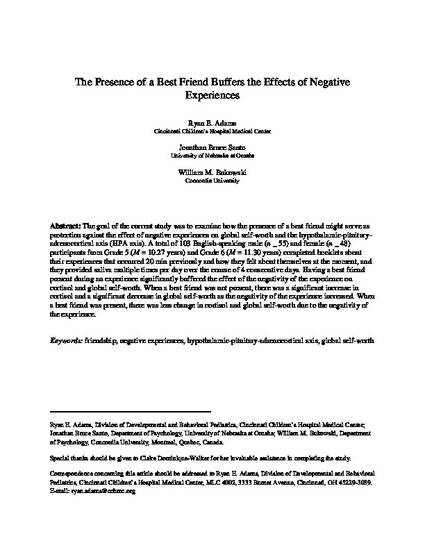
The goal of the current study was to examine how the presence of a best friend might serve as protection against the effect of negative experiences on global self-worth and the hypothalamic-pituitary-adrenocortical axis (HPA axis). A total of 103 English-speaking male (n = 55) and female (n = 48) participants from Grade 5 (M = 10.27 years) and Grade 6 (M = 11.30 years) completed booklets about their experiences that occurred 20 min previously and how they felt about themselves at the moment, and they provided saliva multiple times per day over the course of 4 consecutive days. Having a best friend present during an experience significantly buffered the effect of the negativity of the experience on cortisol and global self-worth. When a best friend was not present, there was a significant increase in cortisol and a significant decrease in global self-worth as the negativity of the experience increased. When a best friend was present, there was less change in cortisol and global self-worth due to the negativity of the experience.

©American Psychological Association, [2011]. This paper is not the copy of record and may not exactly replicate the authoritative document published in the APA journal. The final article is available, upon publication, at: https://doi.org/10.1037/